I spent a lot of this year curled up with 1930s detective novels, a safe and cosy world in which the worst thing that can happen is that you get stabbed with a jewelled antique dagger because someone is after your inheritance. I get it: this has been a weird one for literally everyone in the world. Sometimes though you need something better than a comfort read, which for me is where these books come in: a bracing breath of fresh air, a jolt to the nerves and to the thinking brain, a reminder that you need more than consolation in your life.
These books are all scary in their own way, but what they also have in common is absolutely blistering pacing, combined with a creeping tension that cranks higher and higher as you turn the pages. They’re all brilliantly entertaining, ultimately humane, and stuck with me for weeks after reading.
Do You Dream of Terra-Two? by Temi Oh

A group of desperately ambitious teenagers go to a horrible space academy hoping to be selected for a decades-long mission to a distant planet! This one is remarkably tense even before they go into space, and Oh’s outstanding characterisation lifts it into one of the most memorable SF books I’ve read in years. This wasn’t marketed as a horror book, but the sheer claustrophobia and fragility of life aboard the spaceship is as nail-biting as it gets: you absolutely know something is going to go wrong, it’s just a question of how…
Bonus points: excruciatingly accurate details of the British millennial experience. Baby astronauts reflecting on how they’ll never again go to Costa brought a nostalgic tear to my eye.
The Twisted Ones by T. Kingfisher
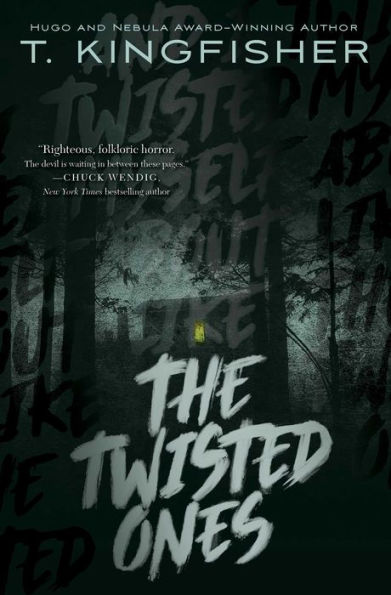
Sorting out your terrible grandmother’s weird house after she dies: sure, what could go wrong. Also, it’s in the middle of the woods far away from anyone? Why not! And there’s a hill behind the house that really shouldn’t be there, and mysterious bone effigies have started appearing hanging from the trees? UHHH. I’m an absolute sucker for folk-horror, and this book also contains a lot of my absolute favourite thing: bad old evil carven rocks that may or may not exist. Just call me the obelisk admirer.
Bonus points: you learn on page one that the dog survives.
The Changeling by Victor LaValle
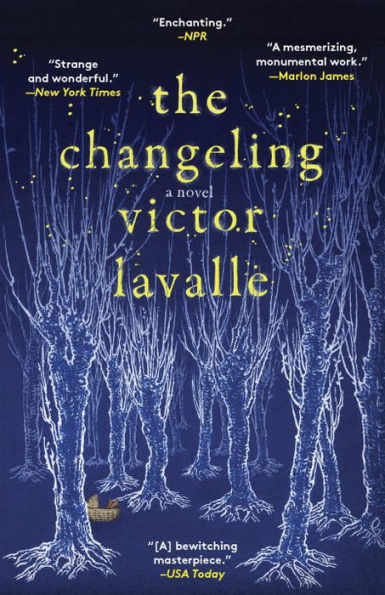
I actually don’t want to tell you too much about this one. It’s better to go in with no idea of what’s going to happen, because the way the mystery unfolds—constantly opening up a grander and more terrifying world—is just a delight. But to give you an idea: it’s about a book dealer and a librarian who have a baby son. She commits an incomprehensible crime and disappears. He goes looking for her and finds that the shape of his world is far larger and stranger than he thought. The horror here is multilayered, running the whole range from intimate and psychological to outright, phantasmagorically monstrous.
Bonus points: it’s also very funny.
The Luminous Dead by Caitlin Starling
Cave-diving is the worst thing I can imagine voluntarily doing so GOOD NEWS this book is about cave-diving solo on an alien planet where you may be attacked by monsters at any time. And also, ghosts??? In fact, for me the scariest part of this book was the slipperiness of both the main character and her handler: both of them are lying to you at one time or another and there is a pervasive sense that either of them will do just about anything to achieve their goals. The whole book is about two characters having a series of remote conversations while one of them is down in a cave, and on this restricted canvas Starling manages to pull off some rich SF worldbuilding, a properly thorny, weird, tense f/f relationship, a wonderful monster, and some truly gruesome and terrifying moments.
Bonus points: you will never feel the same way again about your phone battery running out.
Rosewater by Tade Thompson
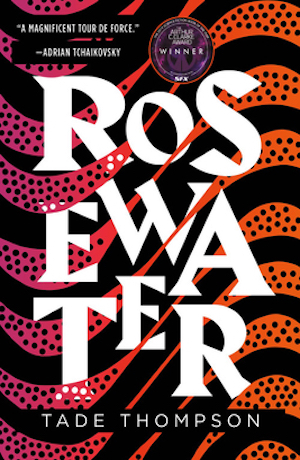
The city of Rosewater has grown up around an alien dome which appeared unexpectedly in Nigeria. The dome’s curious healing powers have drawn pilgrims from far and wide, but some of its effects are more insidious… I was sold from the first scene of this book, which involves a group of bank employees reading literature aloud in shifts in an attempt to jam telepathic hacking attempts. Both sweeping and intricate, creepingly unsettling, vibrantly original, with sinister government agencies, a decaying mind palace built of meat, and one of the most understatedly appalling alien invasions I’ve ever read.
Bonus points: there are two more in the same setting, so if you enjoyed the first one there is plenty more to get your teeth into.
A.K. Larkwood studied English at St John’s College, Cambridge, and now lives in Oxford with her wife and a cat. The Unspoken Name is her debut novel. Its sequel, The Thousand Eyes, publishes August 2021.










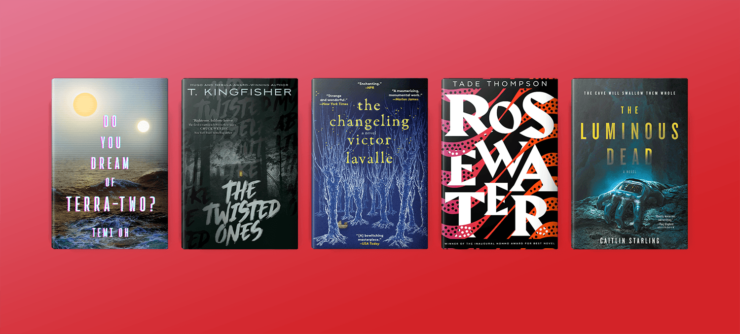
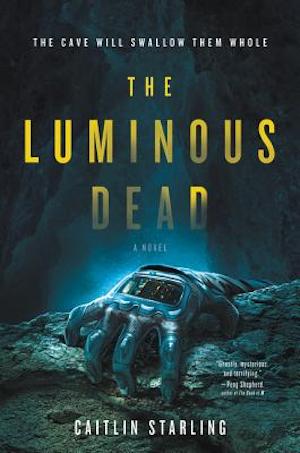
I would add the “Threshold” series by Peter Clines. 14, The Fold, Dead Moon, and Terminus. I won’t ruin the surprises for folks beyond saying I think it blends sci-fi and horror really well. These belong in my elite “re-read” stack.
Also the “Infected” trilogy by Scott Sigler. SUPER creepy alien invasion. I need to also re-read those because…..wow.
I liked the beginning and middle of The Twisted ones a lot. But then there’s a reveal SPOILER that the villian is doing evil deeds in order to avoid getting raped and forced to make monster babies. The hero feels no sympathy for her. It made me uncomfortable and not in a good way. I still like T. Kingfisher as an author but her other horror novel The Hollow Places is scarier anyway and just as funny and page turn-y. In my opinion, her best scary book is a YA Bluebeard retelling called The Seventh Bride. There’s a scene with a scarecrow that I still think about sometimes at night….
There’s a soviet classic novel Andromeda by Ivan Efremov that would fit the sci-fi horror blend criteria. It’s about a crash landing on an alien planet, and is a bit reminiscent to Aliens.